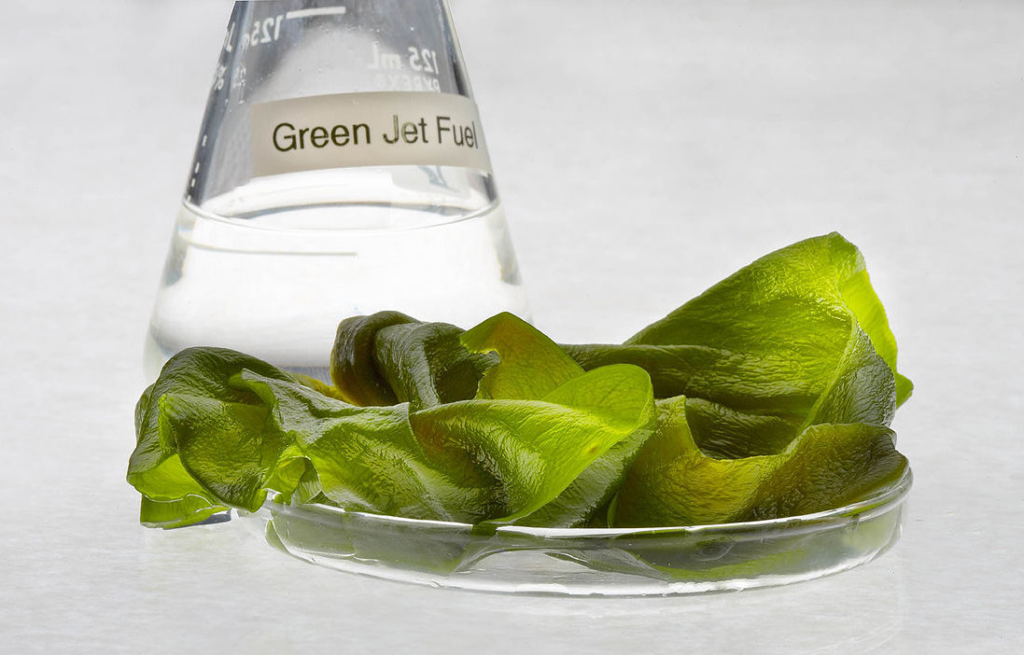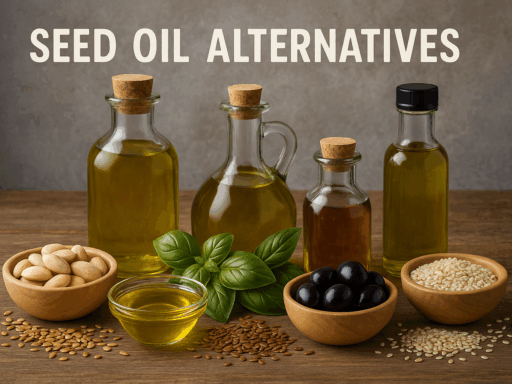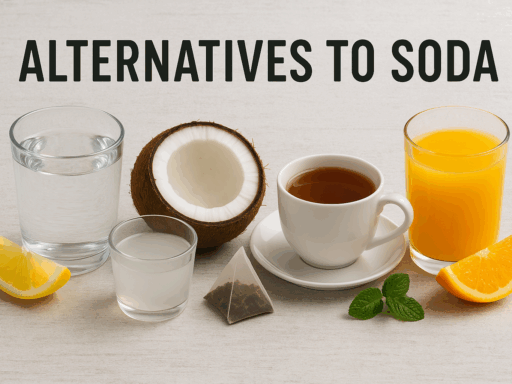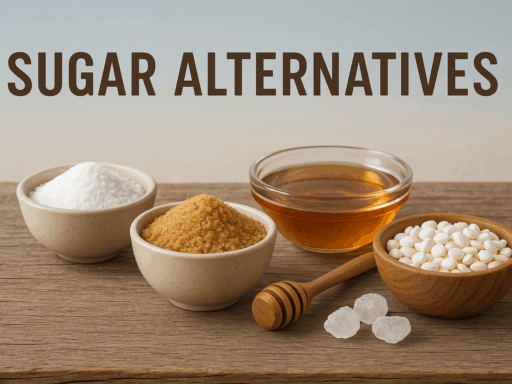Palm oil, derived from the fruit of the oil palm tree, is a highly versatile and inexpensive ingredient used across various industries, including food, cosmetics, biofuels, and household products. However, the environmental and social impacts associated with palm oil production have prompted growing concerns. Deforestation, biodiversity loss, carbon emissions, and human rights violations are some of thePalm oil is one of the most widely used vegetable oils in the world, found in thousands of consumer products across the food, cosmetics, and biofuels sectors. However, its production is associated with severe environmental and social challenges, including deforestation, loss of biodiversity, and human rights violations. In response to these concerns, several alternative oils are being explored to replace palm oil. This article examines some of the most prominent palm oil alternatives, analyzing their sustainability through lifecycle assessments, carbon footprints, and land-use efficiency, among other factors.
Environmental Issues with Palm Oil Production
The environmental impacts of palm oil production have led to significant scrutiny and pressure to transition to more sustainable alternatives. The primary concerns with palm oil cultivation include:
- Deforestation: Palm oil plantations are a leading cause of deforestation in Southeast Asia, where over 4 million hectares of rainforest have been cleared since 1990 for palm oil production (WRI, 2020).
- Biodiversity Loss: The destruction of habitats for species like the orangutan, Bornean rhinoceros, and Sumatran tiger is largely driven by palm oil expansion. Between 2001 and 2015, palm oil production contributed to 23% of deforestation in Malaysia, endangering numerous species (Sustainability Science, 2019).
- Carbon Emissions: The conversion of peatlands to palm oil plantations is a significant source of carbon emissions. It contributes approximately 3.5% of global emissions annually, making palm oil production a critical climate change factor (IUCN, 2019).
- Human Rights Violations: In some regions, palm oil production is associated with child labor, poor working conditions, and human rights abuses. An estimated 60% of palm oil plantations in Indonesia and Malaysia are linked to such violations (ILO, 2020).
These challenges highlight the urgent need for sustainable palm oil alternatives.
Sustainable Palm Oil Alternatives
Several alternative oils are being explored to mitigate the environmental and social impact of palm oil. These alternatives vary in terms of their land-use efficiency, carbon footprint, water consumption, and overall sustainability.
1. Coconut Oil
- Sustainability: Coconut oil has been touted as a more sustainable alternative to palm oil, as coconut trees grow in coastal regions, reducing the need for large-scale deforestation. However, the water usage and energy-intensive extraction processes can offset some of the environmental benefits.
- Land Use Efficiency: Coconut oil production requires significantly less land compared to palm oil. However, over-reliance on monoculture farming of coconuts in some regions can still cause soil depletion and biodiversity loss.
- Lifecycle Analysis: Coconut oil production has a higher carbon footprint during the extraction phase, especially when traditional methods involve burning wood and husk for drying purposes, leading to significant emissions. The carbon footprint can be reduced with modern, sustainable production techniques.
- Challenges: While it offers benefits in terms of reducing deforestation, the global availability of coconuts is limited to specific tropical areas, making it less scalable than palm oil.
- Applications: Used in food products, cosmetics, and skincare for its moisturizing properties.
Sources: oilcocos.com, USDA
2. Rapeseed Oil (Canola Oil)
- Sustainability: Rapeseed oil, derived from the canola plant, is grown primarily in temperate climates such as North America and Europe. It reduces the risk of deforestation associated with palm oil and typically has a lower carbon footprint.
- Land Use Efficiency: The oilseed crop requires more land per ton of oil compared to palm oil but is more land-efficient than other alternatives like soybeans.
- Lifecycle Analysis: Studies show that rapeseed oil has a significantly lower carbon footprint compared to palm oil when grown in temperate climates with low carbon-intensity practices. However, it still involves considerable energy use for extraction and transportation.
- Challenges: Rapeseed oil production can lead to soil depletion and requires significant water resources, though these challenges are generally smaller in scale than those associated with palm oil.
- Applications: Commonly used in food production, biofuels, and cooking oils.
Sources: mdpi.com, Canola Council

3. Shea Butter
- Sustainability: Shea butter is derived from the nuts of the shea tree, native to the semi-arid regions of West Africa. The production process is labor-intensive, but shea butter is produced without large-scale deforestation, which makes it a more sustainable choice in certain contexts.
- Land Use Efficiency: Shea trees are grown in natural ecosystems without requiring extensive land conversion. This can provide ecological benefits when compared to palm oil, which often requires land conversion from rainforests.
- Lifecycle Analysis: Shea butter production involves a high degree of manual labor and uses low-tech processing methods, which can be less energy-efficient. The carbon footprint of shea butter production is estimated at approximately 2.20 kg CO₂e per kg, primarily due to agricultural activities and transportation.
- Challenges: Despite its sustainability, the inefficiency of traditional processing methods and the relatively small-scale nature of production may limit its ability to scale up as an alternative to palm oil.
- Applications: Used extensively in cosmetics, skincare products, and haircare items due to its moisturizing properties.
Sources: apps.carboncloud.com, Fairtrade International
4. Fungi-Based Fats
- Sustainability: Fungi-based fats, such as those derived from mycelium, represent an emerging solution that utilizes organic waste materials to grow rapidly in controlled environments. This production method significantly reduces land-use impacts and offers a much smaller carbon footprint than traditional oil crops.
- Land Use Efficiency: Mycelium-based fats require minimal land, as they can be grown in fermentation tanks, thus eliminating the need for large agricultural plots and reducing the overall environmental impact.
- Lifecycle Analysis: Lifecycle assessments of fungi-based fats have shown that their carbon footprint is significantly lower compared to palm oil, with some estimates suggesting a reduction of up to 90% in emissions per unit of fat produced. The production process is highly efficient in terms of both energy and water use.
- Challenges: While promising, fungi-based fats are still in the developmental stage, and scaling up production to meet global demand presents challenges. The technology is currently not as commercially viable as other alternatives.
- Applications: Emerging in the food industry as a potential replacement for fats in processed foods and plant-based products.
Sources: sciencedirect.com, FungiPerfecti
5. Sunflower Oil
- Sustainability: Sunflower oil is an excellent alternative due to its minimal environmental impact when grown in temperate climates. It requires less water than many other oil crops, and the cultivation process can be relatively low-carbon.
- Land Use Efficiency: Sunflower oil production is highly efficient in terms of land use. The crop requires fewer resources to yield oil compared to some other alternatives.
- Lifecycle Analysis: Sunflower oil has a moderately low carbon footprint, although it can be higher than rapeseed oil due to the energy-intensive extraction methods.
- Challenges: Sunflower oil may not be as stable as palm oil when used in cooking or food production at high temperatures.
- Applications: Commonly used in cooking oils, salad dressings, and certain processed foods.
6. Soybean Oil
- Sustainability: Soybean oil is one of the most widely produced vegetable oils in the world, but its cultivation is associated with deforestation, particularly in regions like the Amazon. However, there are efforts to improve the sustainability of soybean production.
- Land Use Efficiency: Soybeans require more land to produce oil compared to palm oil but are more efficient than other crops like corn.
- Lifecycle Analysis: The carbon footprint of soybean oil is higher compared to alternatives like rapeseed or sunflower oil due to deforestation and land conversion practices in major production regions.
- Challenges: Soybean oil production is often linked to large-scale land use changes, especially in regions where rainforests are cleared to grow soybeans.
- Applications: Commonly used in food products, biofuels, and cooking oils.
7. Jojoba Oil
- Sustainability: Jojoba oil is an eco-friendly alternative because jojoba plants grow in arid regions and do not require large amounts of water or land for cultivation.
- Land Use Efficiency: Jojoba oil production requires relatively little land, and the plant itself can thrive in less fertile soils, reducing its environmental footprint.
- Lifecycle Analysis: Jojoba oil has a lower carbon footprint compared to palm oil, but it is more expensive due to its niche production.
- Challenges: Jojoba oil is not widely available, and its relatively high cost limits its use in large-scale industrial applications.
- Applications: Used in cosmetics, skincare, and haircare products.
8. Olive Oil
- Sustainability: Olive oil is a popular alternative due to its longstanding history of cultivation in the Mediterranean region. Olive trees are drought-resistant, reducing water use.
- Land Use Efficiency: Olive trees require a significant amount of space, but they are well-suited for low-carbon farming systems.
- Lifecycle Analysis: Olive oil has a lower carbon footprint than palm oil, particularly when produced in small, organic farms with minimal pesticide use.
- Challenges: Olive oil production is limited to specific regions, and its scalability is constrained by geographical limitations.
- Applications: Used in food, cosmetics, and health supplements.
9. Hemp Seed Oil
- Sustainability: Hemp oil is produced from the seeds of the hemp plant, which grows quickly and requires minimal pesticide use. Hemp farming is also known for improving soil quality.
- Land Use Efficiency: Hemp requires less land to produce oil than many other crops, making it a highly sustainable choice.
- Lifecycle Analysis: Hemp oil has a low carbon footprint, and its production process is relatively efficient in terms of water and energy use.
- Challenges: The cultivation of hemp is limited by local regulations in certain regions.
- Applications: Used in cosmetics, skincare, and industrial applications.
10. Algae Oil
- Sustainability: Algae oil is considered one of the most sustainable alternatives due to its rapid growth and ability to produce large amounts of oil in a relatively small area.
- Land Use Efficiency: Algae can be cultivated in controlled environments without the need for arable land, making it a highly efficient alternative.
- Lifecycle Analysis: Algae oil has an exceptionally low carbon footprint and requires minimal water compared to traditional vegetable oils.
- Challenges: The commercial scalability of algae oil is still in its infancy, and the technology to produce it efficiently at scale is not yet widely available.
- Applications: Emerging in the food and biofuel industries.
Comparative Analysis of Palm Oil Alternatives
The following table provides a comprehensive comparison of 10 prominent alternatives to palm oil based on several key sustainability metrics, including land use efficiency, carbon footprint, water usage, and scalability.
| Alternative | Land Use Efficiency | Carbon Footprint | Water Usage | Scalability | Applications |
|---|---|---|---|---|---|
| Coconut Oil | Moderate | High (due to traditional drying) | High | Moderate | Food, Cosmetics, Skincare |
| Rapeseed Oil | High | Moderate | Moderate | High | Cooking oils, Biofuels, Food |
| Shea Butter | High | Low to Moderate | Moderate | Low | Cosmetics, Skincare, Haircare |
| Fungi-Based Fats | Very High | Very Low | Very Low | Low (early-stage) | Food, Plant-based products |
| Sunflower Oil | High | Moderate | Moderate | High | Cooking oils, Salad Dressings, Food |
| Soybean Oil | Moderate | High (due to deforestation) | High | High | Food, Biofuels, Cooking Oils |
| Jojoba Oil | High | Low | Low | Low | Cosmetics, Skincare |
| Olive Oil | Moderate | Low | Low | Moderate | Food, Cosmetics, Health Supplements |
| Hemp Seed Oil | High | Low | Low | Low | Cosmetics, Skincare, Industrial |
| Algae Oil | Very High | Very Low | Very Low | Low (early-stage) | Food, Biofuels |
Key Insights:
- Land Use Efficiency:
- Fungi-based fats, algae oil, and hemp seed oil stand out for their superior land-use efficiency. These alternatives can be cultivated in controlled environments (such as fermentation tanks), requiring minimal agricultural land. This gives them a significant advantage over traditional oil crops like soybean oil, which requires considerable land area and is associated with deforestation in sensitive regions.
- Coconut oil, rapeseed oil, and sunflower oil also exhibit high land-use efficiency but still require some amount of land dedicated to large-scale farming.
- Carbon Footprint:
- Fungi-based fats and algae oil are leading the charge in terms of reducing carbon emissions. Due to their production methods, which rely on less energy-intensive processes and less land conversion, these alternatives have a very low carbon footprint compared to palm oil.
- Olive oil, jojoba oil, and sheabutter also have low carbon footprints, especially when produced sustainably. In contrast, soybean oil has a higher carbon footprint, largely due to deforestation associated with its production in regions like the Amazon.
- Water Usage:
- Fungi-based fats and algae oil outperform other alternatives in terms of water usage, requiring very minimal water compared to traditional crops. This makes them highly sustainable in areas where water scarcity is a concern.
- Coconut oil and soybean oil require significant amounts of water for cultivation, adding pressure on water resources in water-scarce regions.
- Scalability:
- Rapeseed oil and sunflower oil are highly scalable alternatives, with widespread production and established supply chains. These oils are already deeply integrated into global markets and are commercially viable for large-scale adoption.
- Fungi-based fats, algae oil, and hemp seed oil face challenges in scalability due to their early-stage technology and the current limited production capacity. However, as technologies evolve and production methods become more efficient, they hold significant promise for widespread use.
- Applications:
- Most of the alternatives listed here are versatile, with rapeseed oil, sunflower oil, and soybean oil commonly used in food production, cooking oils, and biofuels.
- Shea butter, jojoba oil, and coconut oil are heavily used in the cosmetics and skincare industries, where their properties as moisturizers are highly valued.
- Emerging alternatives like fungi-based fats and algae oil are still gaining traction in food and biofuels but hold significant potential for plant-based and eco-conscious products.
Emerging Alternatives in the Food Industry
In the food industry, there is a growing demand for sustainable alternatives to palm oil due to both environmental and health concerns. Emerging solutions include:

- Fungi-based fats: Researchers are developing fungi-derived oils that mimic the functionality of palm oil, offering a potential solution for high-fat foods. Fungi can be cultivated in bioreactors, requiring minimal land and water. A study by the University of Edinburgh suggests that mycoprotein-based oils can reduce the carbon footprint of food production by 30% compared to conventional palm oil (University of Edinburgh, 2021).
- Fermented oils: Microbial fermentation is an innovative approach where yeast or bacteria produce oils. This process has been studied for producing sustainable, high-quality oils like omega-3-rich DHA oil, which is currently in use as an alternative to fish oil.
- Seaweed-based fats: Seaweed offers another promising solution. Its high lipid content makes it a potential substitute for palm oil in processed foods. Research is being conducted into seaweed oil’s emulsifying properties, which are key for its application in food production.
Source: “Innovation in Plant-Based Oils”, Food Business News. https://www.foodbusinessnews.net
Alternatives to palm oil in cosmetics
The cosmetics industry is increasingly shifting towards sustainable ingredients, including oils derived from sustainable sources. Innovations such as bio-based alternatives (e.g., using fungi-derived fats and algae oils) are driving the transition toward greener production practices. Companies are also embracing upcycled ingredients, which can repurpose waste materials from agricultural and food industries, reducing the demand for virgin resources.
- Jojoba oil: Extracted from the seeds of the jojoba plant, jojoba oil has gained popularity for its non-comedogenic, moisturizing properties. It is grown in arid regions with minimal water usage, making it a sustainable alternative to palm oil.
- Squalane from sugarcane: Squalane, traditionally derived from sharks’ livers, is now being produced from sugarcane, a renewable and sustainable source. This innovation has become widely adopted in cosmetics and skincare products.
- Biodiesel from algae: Algae-based oils are also being used in skincare formulations due to their antioxidant properties and ability to hydrate skin without clogging pores.

- Plant-based waxes: Candelilla and rice bran waxes offer sustainable alternatives for cosmetics, especially lip balms and lotions. The Candelilla Institute is researching ways to make harvesting more efficient and sustainable. At the same time, RiceBran Technologies focuses on refining rice bran oil processing to extract waxes for cosmetic use more sustainably. Both options are praised for their low environmental impact, but scalability remains a challenge, particularly for candelilla wax, primarily produced in Mexico and the U.S.
Source: “Palm Oil Alternatives in Cosmetics”, Personal Care Magazine. https://www.personalcaremagazine.com
Solutions in Research
As the demand for sustainable alternatives grows, several cutting-edge technologies and research areas offer promising solutions:
Synthetic Biology and Microbial Fermentation:
Research into microbial fermentation and synthetic biology is enabling the production of fats and oils without the need for traditional agriculture. Companies like Perfect Day are using microbial fermentation to create dairy proteins without the environmental impact of livestock farming. This technology has significant potential for producing alternative oils at scale. A report from the European Commission suggests that microbial fermentation can reduce land use and carbon emissions by up to 60% compared to traditional plant-based oil production (European Commission, 2021).
- C16 Biosciences: A New York-based biotech startup, C16 Biosciences, is using microbial fermentation to develop a lab-grown oil alternative that mimics the properties of palm oil. Funded by organizations like Breakthrough Energy Ventures, the company has focused on producing oils at scale using yeast strains. C16’s oil is expected to enter the market by 2025 and aims to offer a sustainable solution that does not contribute to deforestation.
- Calysta: Another innovative company, Calysta, is utilizing microbial fermentation to create alternative oils by converting methane into lipids through fermentation. This technology could produce oils with a much lower environmental footprint than palm oil, reducing reliance on agricultural land.
Gene Editing and Crop Improvement:
Advances in CRISPR gene editing are being used to improve oilseed crops, such as soy, canola, and algae, making them more efficient and sustainable. Research is ongoing into creating oil crops that require less water, fertilizer, and land. A recent study by the University of California, Davis, found that gene-edited oil crops could produce up to 30% higher yields with lower environmental input (UC Davis, 2021).
- Corteva Agriscience: As a leader in agricultural innovation, Corteva uses CRISPR to create oil crops with improved yields and reduced water and fertilizer needs. They are working on gene-edited sunflower and soybean crops to optimize oil production while minimizing environmental degradation.
- The Salk Institute’s Harnessing Plants Initiative uses gene-editing technologies to develop plants that can absorb more CO2 while producing oil. By modifying plant root structures, the Salk Institute aims to make oil crops part of the solution rather than a contributor to climate change.
Palm Oil from Cell Cultures:
Researchers are developing cell-based methods to produce palm oil from cultured oil palm cells. This approach could significantly reduce land-use change and environmental degradation while still producing a product with the same properties as conventional palm oil. According to a 2020 study by the International Journal of Biotechnology, this process could lower land requirements by up to 90% compared to traditional oil palm farming (International Journal of Biotechnology, 2020).
- Singapore’s A*STAR Institute of Chemical and Engineering Sciences: Researchers here are developing methods to grow palm oil cells in lab environments, producing palm oil without deforestation or monoculture plantations. This cell-based approach could revolutionize palm oil production by making it entirely land-independent.
- Xylome: This U.S.-based company is working on producing oils similar to palm oil by growing genetically engineered yeast. Xylome is leveraging biotechnology to scale oil production in bioreactors and supply industries with palm oil substitutes that don’t require land or generate the environmental toll of traditional oil crops.
University of Cambridge Research:
The University of Cambridge is studying the use of cell-based methods to create sustainable plant oils, including alternatives to palm oil. Their work focuses on optimizing cell cultures to produce fats and oils that are genetically tailored to have similar functional properties to palm oil, but without the environmental footprint (University of Cambridge, 2021).
Challenges and the Road Ahead:
The future of sustainable palm oil alternatives is promising but faces considerable obstacles.
- Cost & Scalability: Many of the alternatives, such as algae oil and cell-based palm oil, are still expensive to produce at scale. The cost of algae oil, for example, is currently 2-3 times higher than palm oil, making it less competitive for mass-market applications (Biofuels Digest, 2020). Further investment in research and development is needed to make these alternatives economically viable.
- Land-Use Competition: While alternatives like rapeseed, sunflower, and hemp are more sustainable, they still require significant land. In fact, it is estimated that large-scale adoption of these alternatives could require as much as 30 million hectares of land, leading to potential conflicts with food production (FAO, 2020). There is ongoing debate about the trade-offs between food production and biofuel or oil crop cultivation.
- Sustainability Certification: There is an increasing need for standardized sustainability certification systems to ensure that alternatives are produced ethically and sustainably. Certification schemes for oils such as palm oil’s RSPO (Roundtable on Sustainable Palm Oil) must be expanded to include these alternatives. A 2021 report from the Global Sustainability Forum highlighted the lack of universal certification for plant-based alternatives, which could hinder their widespread adoption (GSF, 2021).
- Consumer and Industry Adoption: Despite the clear environmental benefits of palm oil alternatives, consumer acceptance remains a challenge, especially regarding the price premium associated with sustainable products. Unilever is partnering with companies like C16 Biosciences to pilot the use of microbial oil in its products. However, broad adoption will require consistent messaging about the environmental benefits of these alternatives. According to a 2020 survey by McKinsey & Company, 62% of consumers are willing to pay more for sustainable products, but 78% of them are not willing to pay more than 10% extra (McKinsey & Company, 2020). Educating consumers and improving the affordability of these alternatives will be key to their widespread adoption.
Source: “Challenges in Scaling Up Sustainable Alternatives”, GreenBiz. https://www.greenbiz.com
The quest for sustainable alternatives to palm oil has led to promising innovations, each with distinct advantages and challenges. Coconut oil and rapeseed oil are currently the most widely available alternatives, but both have their environmental and social drawbacks, particularly related to water use and land requirements. Shea butter presents a sustainable option in specific regions, particularly for cosmetics, but scalability remains an issue. Fungi-based fats, though still in the early stages, offer the most significant potential for reducing carbon emissions and land-use impacts.
As the global demand for palm oil alternatives increases, it is crucial that lifecycle assessments and sustainability data are continuously updated to ensure that the alternatives chosen can provide a truly sustainable solution without replicating the negative environmental consequences of palm oil production.





